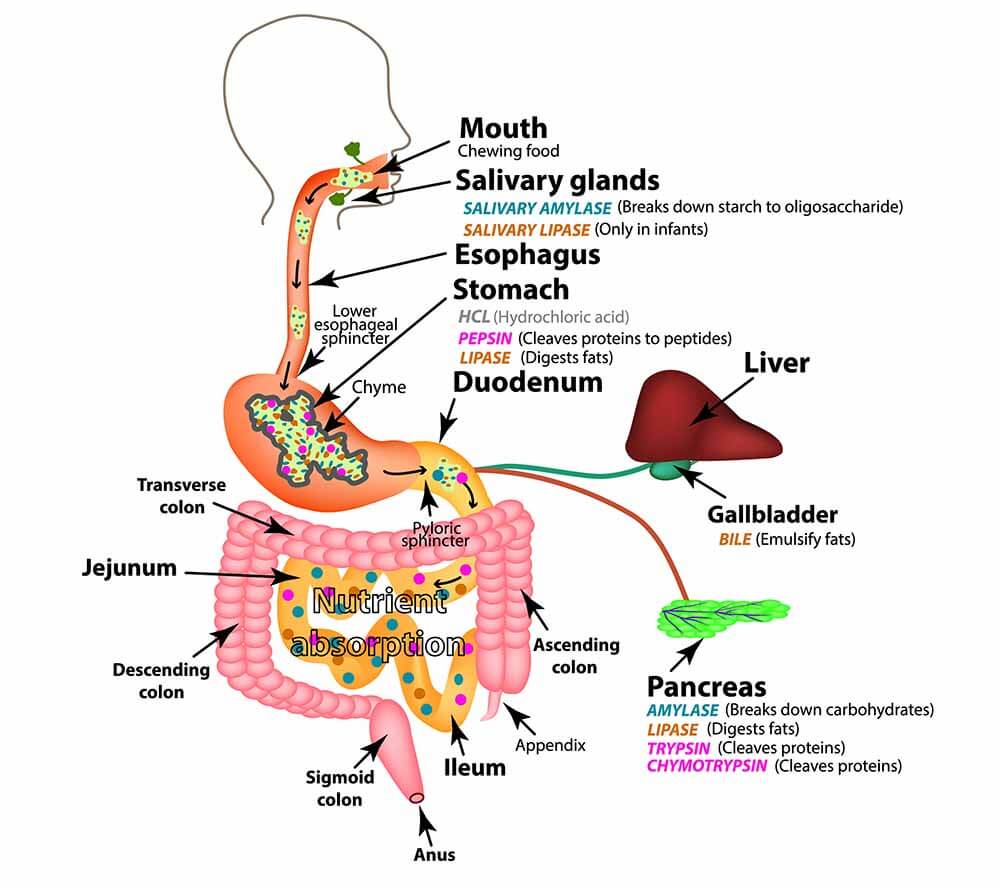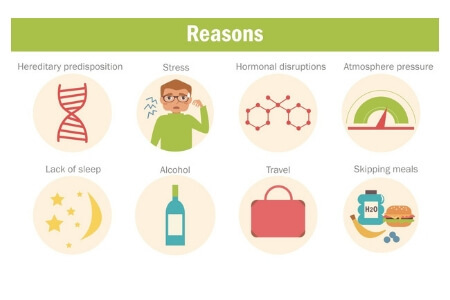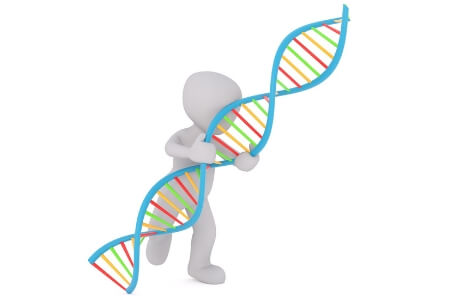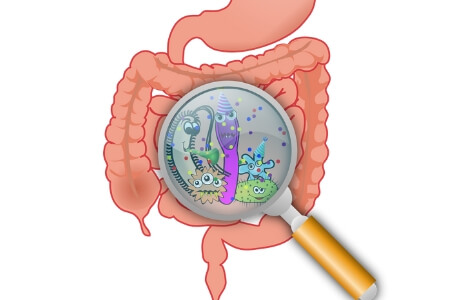COMPLETE MAGNESIUM SUPPORT
My Top Choice - Magnesium Breakthrough - The ONLY supplement with all 7 essential magnesium types in one formula. Most only have 1-2 types, leaving you deficient.
Digestion Problems and Migraine: Is Your Gut Behind Your Headaches?
Are digestion problems triggering your migraine attacks? Research reveals that gut health can play a major role in migraine patterns. The gut-brain connection, linking your gut bacteria and key chemicals like serotonin, affects both digestion and brain function. Here, we’ll look at how digestive issues like IBS, gastroparesis, and gut imbalances may worsen migraine headaches, and provide step-by-step strategies to help reduce the frequency and severity of attacks.
 Are Digestion Problems Fueling Your Attacks? Get Key Signs and Fixes Here
Are Digestion Problems Fueling Your Attacks? Get Key Signs and Fixes HereHow Digestion Impacts Migraine
The gut-brain axis is a key player in understanding the connection between digestive health and migraines. The gut and brain communicate bidirectionally through neurotransmitters like serotonin and CGRP (calcitonin gene-related peptide), which influence both digestive processes and migraine activity. When this communication is disrupted, it can exacerbate migraine symptoms.
Gut-Brain Communication
- Serotonin: Known as the “feel-good” neurotransmitter, about 90% of serotonin is produced in the gut, where it regulates digestion. Low serotonin levels, associated with both mood disorders and migraines, can contribute to digestive disturbances like nausea and vomiting during migraine attacks. [1+6]
- CGRP and Inflammation: CGRP is a neuropeptide involved in migraine attacks. High levels of CGRP in the gut can slow digestion and trigger inflammation, often leading to nausea or pain. Inflammatory responses in the gut may travel via the bloodstream to the brain, worsening migraine symptoms. [4+5]
I don't take anything else... I LOVE these enzymes!
My #1. MassZymes by BiOptimizers – click this link to save 10% with my code. These enzymes are by far the best product I have found so far in terms of getting results.
The Basics of Digestion
Digestion is a very complex area, so I will just keep it all as simply as I can. Digestion actually begins in the mouth.
There are 2 digestive system function processes that take place
in our body - mechanical digestion and chemical digestion. The mouth
is where the mechanical digestion process starts.
Your saliva in your mouth provides ptyalin to soften the food and enzymes to break down the food as the teeth grind or ‘masticate’ the food. So, the teeth break the food down into small pieces and this enables the chemicals required to start digestion. The tongue muscle then helps to form a ball and squeeze it down the throat.
The ball of food goes down the esophagus and into the stomach – this is still part of the mechanical process. The stomach is where the food is broken down further with chemicals and enzymes enabling a separation between nutrients to be taken into the body and waste products to be eliminated.
Our digestion plays such an important role
for our body’s well being. The nutrients that get to the blood in our body are
directly determined by what we put in our mouths. Nutrient deficiency
is already known to be high in people living with migraine.
 What our digestive system looks like inside @migrainesavvy
What our digestive system looks like inside @migrainesavvyCommon Digestion Problems for Migraine Sufferers
Digestive triggers that commonly affect migraine sufferers include:
- Gastroparesis: Delayed gastric emptying is common in people with migraine disorder, making it harder for the stomach to move food through the digestive tract during an attack. This can interfere with the absorption of medications taken to relieve attacks. Non-oral medications, like nasal sprays or injections, can be more effective for you if you are having significant GI issues.
- Irritable Bowel Syndrome (IBS): A common comorbidity with migraine, is often due to shared triggers like stress and serotonin fluctuations. The inflammation and increased gut permeability seen in IBS may exacerbate migraine frequency.
- Bloating, Constipation, and Diarrhea: These symptoms, often linked to disorders like IBS, can disrupt the gut-brain connection, affecting overall inflammation levels and potentially triggering migraine attacks. [2] >> Read more about constipation here <<
- Nutrient Deficiencies: Poor digestion affects the absorption of key nutrients. Low levels of magnesium, B vitamins, and omega-3 fatty acids, for example, are known to increase the likelihood of migraines.
- Microbiome Imbalance: Imbalances in gut bacteria can contribute to inflammation, which can increase migraine susceptibility. Probiotics and prebiotics are promising options if you're seeking to improve both gut health and migraine symptoms.
Actionable Strategies for Supporting Gut Health and Reducing Migraine Attacks
Begin with Step 1 (hydration and fiber) as a foundational practice. Once established, integrate each subsequent step in the listed order to build a comprehensive, gut-supportive routine for reducing migraine frequency.
Step 1: Start with Hydration and Fiber Intake
- Why: Hydration is essential for overall body function, and adequate fiber supports regular bowel movements, reducing the chances of constipation, a common digestive issue that can trigger an attack.
- How: Aim for at least 8 glasses of water per day. Increase fiber gradually by adding whole grains, leafy greens, and fiber-rich fruits like apples and berries. Avoid overdoing it with fiber, as sudden increases can cause gas and bloating. >> Read more about proper hydration here
Step 2: Practice Mindful Eating Habits
- Why: Eating slowly and chewing thoroughly aids digestion by allowing enzymes in saliva to begin breaking down food properly, which can prevent bloating and indigestion that may trigger an attack.
- How: Set aside time for meals, focus on each bite, and aim to chew each mouthful thoroughly before swallowing. Avoid multitasking while eating to allow your body to focus on the digestive process.
Step 3: Incorporate an Anti-Inflammatory Diet
- Why: Anti-inflammatory foods can reduce both gut and systemic inflammation, which may help decrease migraine frequency. Foods rich in omega-3 fatty acids, for instance, can reduce inflammation markers that might otherwise trigger migraines.
- How: Add anti-inflammatory foods like salmon, flaxseeds, turmeric, leafy greens, and nuts. Avoid common migraine and digestive triggers, such as caffeine, alcohol, processed foods, and artificial sweeteners.
Step 4: Add Probiotics to Support Gut Microbiome Balance
- Why: Probiotics can help maintain a healthy balance of gut bacteria, which supports digestion and may reduce gut inflammation that could contribute to migraine susceptibility.
- How: Start with a high-quality probiotic supplement or add probiotic-rich foods like yogurt, kefir, sauerkraut, and kombucha. Gradually increase intake, as too much at once can sometimes cause gas and bloating.
Step 5: Try Digestive Enzymes for Better Food Breakdown
- Why: Enzymes help break down food more effectively, which can reduce digestive discomfort like bloating and gas, which are sometimes linked to migraine.
- How: Consult a healthcare provider before adding digestive enzymes. Begin with a product containing Betaine HCL and pepsin, or enzymes like amylase, lipase, and protease, taken with meals. Monitor your body's response and adjust as needed.
The Role of Digestive Enzymes
Digestive enzymes can aid in breaking down food, easing digestion, and potentially reducing digestive-related migraine triggers. Enzymes like Betaine HCL and Pepsin are commonly recommended to support stomach acid production and protein breakdown, which can alleviate bloating, gas, and other digestion problems. [1+5]
- When Enzymes Can Help: People with low stomach acid (a common issue with age) may benefit from digestive enzyme supplements, as they assist in breaking down proteins and fats that can otherwise irritate the digestive system and cause inflammation.
- How to Use Digestive Enzymes: Always consult with a healthcare provider before adding supplements. Typically, enzymes are taken with meals, and the dosage depends on individual needs and specific enzyme formulations.

Recommended Enzymes and Ingredients
If you choose to try digestive enzymes, here are some evidence-based ingredients to consider:
- Betaine HCL: Aids in stomach acid production, essential for protein digestion.
- Protease: Breaks down proteins, preventing undigested food from becoming a migraine trigger.
- Lipase: Essential for fat digestion, reducing bloating and gas.
- Amylase: Breaks down carbohydrates, easing digestion of starchy foods.
- Papain and Bromelain: Plant-based enzymes that support protein digestion and have anti-inflammatory effects. [6+7]
When purchasing enzymes, look for a product that meets your dietary needs. For example, some formulas are bovine-based and not suitable for vegetarians or vegans.
Here's my preferred digestive enzyme formulation:
>> To the shop - MassZymes Shop. Use my code SAV10 to get a 10% discount.
Additional Tips to Support Digestive and Migraine Health
Addressing digestive issues can alleviate some migraine symptoms. Here are a few strategies:
- Follow a High-Fiber, Low-FODMAP Diet: Fiber supports gut health, while a low-FODMAP diet reduces fermentable sugars, which can cause bloating and gas. A high-fiber diet, particularly when combined with probiotics, has been shown to balance gut bacteria and lower inflammation. [3+6]
- Avoid Common Triggers: Foods that often cause digestive issues for migraine sufferers include processed foods, artificial sweeteners, caffeine, and foods high in refined sugars. Eating slowly and avoiding overeating can also prevent digestive overload.
- Rest and Digest: While staying hydrated helps prevent both migraine headaches and digestive issues, rest and stress management are also critical. Stress increases cortisol, which disrupts both gut health and the neurochemical balance affecting migraine. [7]
- Establish Consistent Mealtimes: Sticking to a regular eating schedule can help regulate your body’s digestive rhythm and prevent the discomfort that may trigger an attack. Plan your meals and snacks at the same times each day to support your digestive health and overall well-being. A migraine brain loves routine.
Further Reading and Related Resources
Final Thoughts
Digestive health plays a significant role in migraine management, with the gut-brain axis serving as a key link between the two. By supporting digestion through diet, supplements, and lifestyle changes, you may find a path to more effective relief. Consult with your healthcare provider for tailored advice and explore more about migraine and digestive health in our related resources.
MIGRAINE CAUSES Related Articles
How to be more MIGRAINE SAVVY right now...
Digestion Problems and Migraine References:
1. Healthline. Understanding Digestion Problems: GERD, IBD, and More. Available [online] at: https://www.healthline.com/health/digestion-problems
2. Everyday Health. 9 Common Digestive Conditions from Top to Bottom. Available [online] at: https://www.everydayhealth.com/digestive-health/common-digestive-conditions-from-top-bottom/
3. Verywell Health. Digestive System Diseases: Common, Rare, Serious Types. Available [online] at: https://www.verywellhealth.com/digestive-system-diseases-7375274
4. Mayo Clinic. Migraines and gastrointestinal problems: Is there a link? Available [online] at: https://www.mayoclinic.org/diseases-conditions/migraine-headache/expert-answers/migraines/faq-20058268
5. Migraine Again. The Gut-Brain Connection and Migraine. Available [online] at: https://www.migraineagain.com/gut-brain-connection-migraine/
6. The Journal of Headache and Pain. Gut-brain Axis and migraine headache: a comprehensive review. Available [online] at: https://thejournalofheadacheandpain.biomedcentral.com/articles/10.1186/s10194-020-1078-9
7. American Headache Society. Research Summary: Link Between Gastrointestinal Disorders and Migraine. Available [online] at: https://americanheadachesociety.org/research/library/research-summary-a-link-between-gastrointestinal-disorders-and-migraine-insights-into-the-gut-brain-connection










